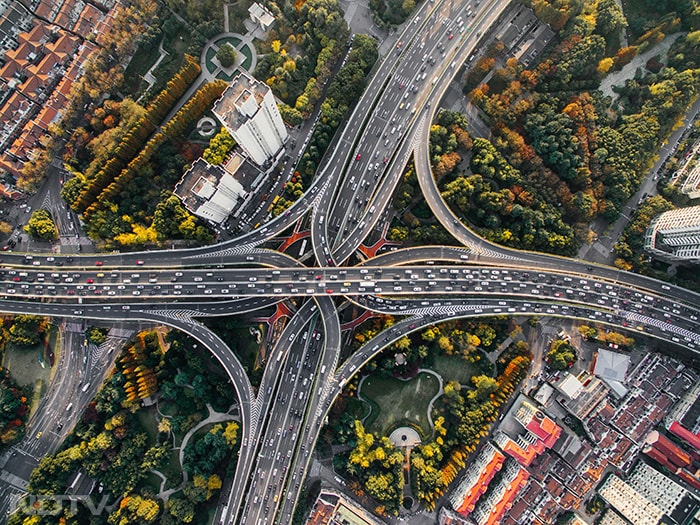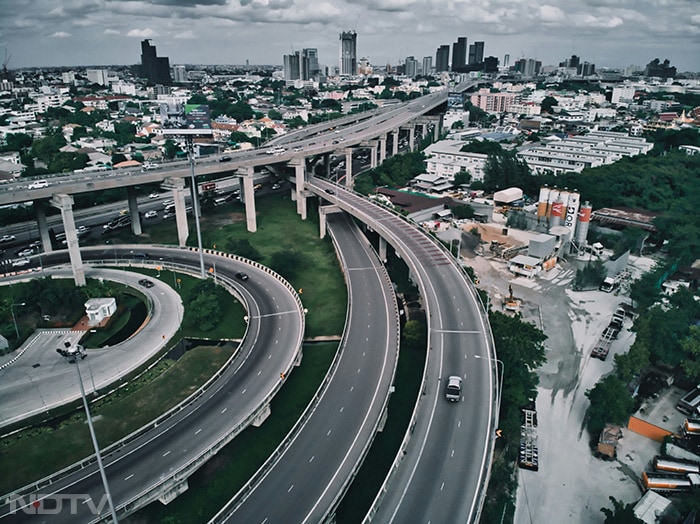Self-Healing Roads In India? Here's What Government Is Planning
Potholes pose serious risks and lead to traffic accidents on highways. This is why NHAI is planning to introduce a revolutionary technology.
-
 The National Highways Authority of India (NHAI) is expected to introduce a technology that could revolutionise road maintenance in the country. It will lead to creation of 'self-repairing or healing' roads. (Unsplash)
The National Highways Authority of India (NHAI) is expected to introduce a technology that could revolutionise road maintenance in the country. It will lead to creation of 'self-repairing or healing' roads. (Unsplash) -
 This technology will enable a road to 'repair' itself using a new type of asphalt, which will be infused with steel fibre along with bitumen. (Unsplash)
This technology will enable a road to 'repair' itself using a new type of asphalt, which will be infused with steel fibre along with bitumen. (Unsplash) -
 If a gap emerges on the road, the bitumen will spread to cover it and along with steel threads, fill the potholes. NHAI official say it will fix the persistent problem of potholes. (Unsplash)
If a gap emerges on the road, the bitumen will spread to cover it and along with steel threads, fill the potholes. NHAI official say it will fix the persistent problem of potholes. (Unsplash) -
 It is, however, not known how long the asphalt will take to cover and 'repair' a pothole or gap in the road. (Unsplash)
It is, however, not known how long the asphalt will take to cover and 'repair' a pothole or gap in the road. (Unsplash) -
 The government is expected to undertake a cost-benefit analysis of the project before giving a go-ahead. NHAI is confident that the new technology will increase the lifespan of roads and minimise traffic disruption caused by potholes. (Unsplash)
The government is expected to undertake a cost-benefit analysis of the project before giving a go-ahead. NHAI is confident that the new technology will increase the lifespan of roads and minimise traffic disruption caused by potholes. (Unsplash) -
 Asphalt is a sustainable paving material used for constructing pavements and highways, along with airport runways, parking lots and driveways. (Unsplash)
Asphalt is a sustainable paving material used for constructing pavements and highways, along with airport runways, parking lots and driveways. (Unsplash) -
 The material ultimately speeds construction, is environmentally friendly, and provides a smooth and quiet ride. (Unsplash)
The material ultimately speeds construction, is environmentally friendly, and provides a smooth and quiet ride. (Unsplash) -
 It is made by a mixture of aggregates, binder and filler. Aggregates are mixed with bitumen to create a durable and reliable mixture. (Unsplash)
It is made by a mixture of aggregates, binder and filler. Aggregates are mixed with bitumen to create a durable and reliable mixture. (Unsplash) -
 But over long period of time, bitumen deteriorates, leading to erosion of the asphalt and the formation of cracks, which eventually evolve into hazardous potholes. The new technology aims to tackle this degradation. (Unsplash)
But over long period of time, bitumen deteriorates, leading to erosion of the asphalt and the formation of cracks, which eventually evolve into hazardous potholes. The new technology aims to tackle this degradation. (Unsplash)
Advertisement
Advertisement
Advertisement
